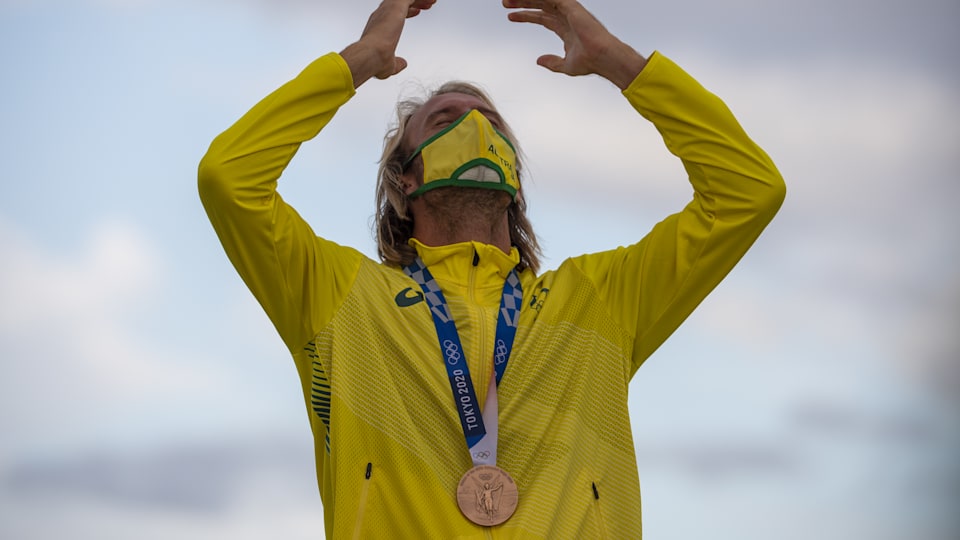
In 2015, Owen Wright was in excellent shape. He was fifth in the World Surfing League ranking and was looking forward to the best career result at the end of the season. However, this dream fell through as he was preparing for the final competition of the year.
During training, the Australian fell from his board and faced the wave's destructive power. Surfers normally call such a situation a wipe out. "It's almost like I was spinning in a washing machine", said Wright in an interview with Olympics.com. A 4,5m wave swallowed Owen and left him unconscious.
The surfer suffered from blood effusion in the brain. He was taken to the hospital where he was diagnosed with a brain injury. His state did not stabilise during the following three weeks, and doctors closely monitored the athlete's condition.
The consequences of his wipe out haunted him with something new everyday: an inability to walk, slowed speech, anxiety, adrenaline outburst, headaches. Sometimes, Owen woke up in the middle of the night and asked, "Where am I? What am I doing here?"
His recovery involved a number of specialists including a naturopath (alternative medicine specialist), neurologists and psychologists. The main challenge was that Owen couldn't make his brain remember basic functions, including simply walking.
The Australian was doing a series of dynamic neuromuscular stabilisation exercises for the purpose of rehabilitation. This method involves activating intramuscularly memory. In order to do this, one has to crawl, lie on their stomach and do all other things that a human learns how to do right after he is born.
After getting back to normal life, Wright was drawn to the waves and his surf board. But he had to start all over again.
"I had to learn how to surf again. It took a year to get back to competitions. There was a time, when I was considering quitting. Doctors did not give any guarantees."
Owen's passion for surfing is rooted on a genetic level. His father passed down his love for the sport to his five kids. Owen's sister Tyler is a two-time World Champion among women, his brother also competes at a professional level. "My father had the following philosophy: if a child likes surfing, his fatherhood is easier," Wright told the BBC.
When Owen decided to start over, his family supported him. The strange thing about his injury was the fact that everything looked absolutely normal. He had no visible cuts or bruises, no cast or crutches. "I don't think that I realised all the seriousness of the situation. They had to hide my surfing boards. When I just learned to walk around the house, I already wanted to get back on that surfboard."
After receiving his doctor's approval, Wright had yet another shocking discovery: his surfing skills have also disappeared. But exactly a year after, in March, 2017 Owen won the World Surfing League Quicksilver Pro Gold Coast. In the final, he managed to beat his best friend Matt Wilkinson who helped him during his rehabilitation, and his wife Kita and son were celebrating with him at the shore.
After getting back to surfing, Wright started surfing with a. "I put on a helmet if there is any sort of risk. If there are many people in the water, I surf with a helmet on in case if I crash with anybody. When the waves are big, I wear it as well." Owen hopes that one day helmets will become an essential part of surfing.
At 31, Owen got to the peak of his career: he won a historic, first-ever bronze medal in surfing for Australia at the Olympics in Tokyo. It's an achievement that completely puts his injury behind him. "After the injury I had to learn everything again, but since I got to the Olympics, it means I am definitely back."
